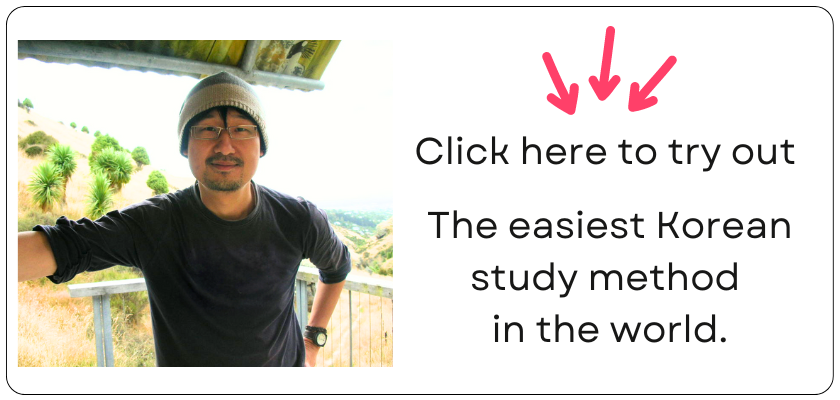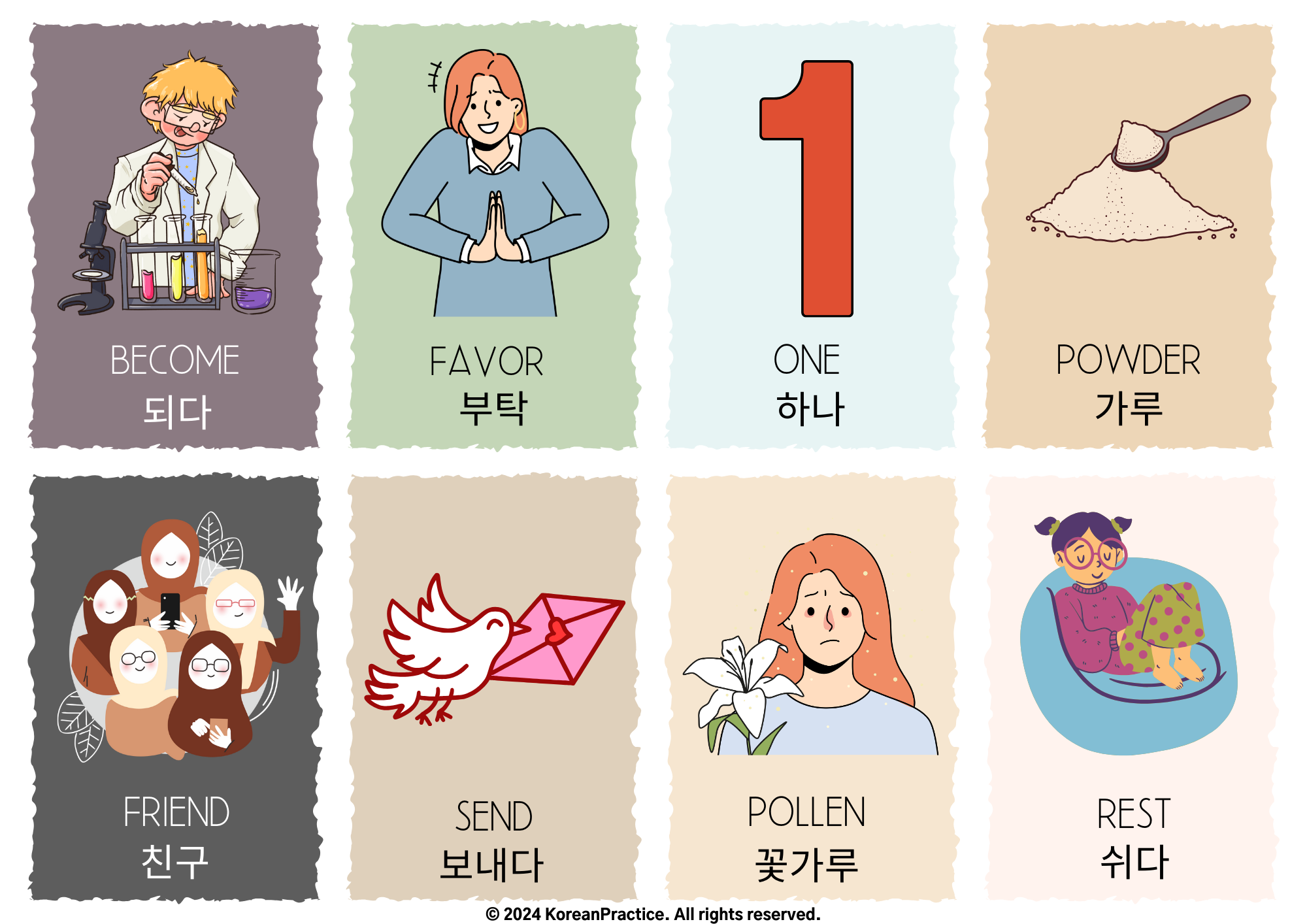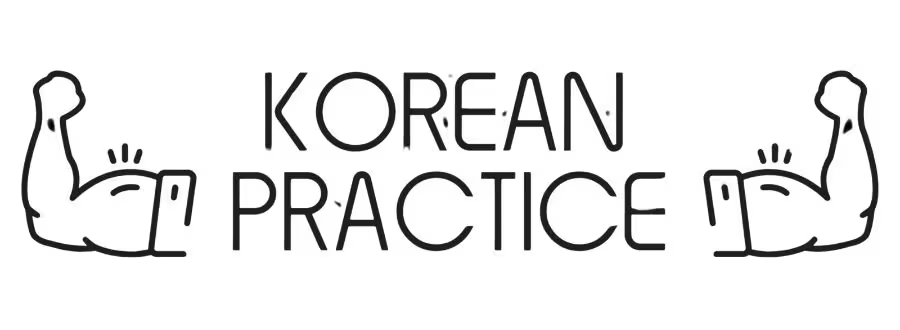For those who are interested in learning the language, one of the biggest challenges is memorizing the many Korean nouns that are an essential part of the language.
However, with the right approach, remembering Korean nouns can be simple and even fun. Here are some tips and strategies that you can use to master Korean vocabulary.

1. Start with the Basics
Before you start memorizing new Korean nouns, it is important to have a solid foundation in the basics of the Korean words.
Once you have a good grasp of these basics, you will be able to recognize and understand new nouns more easily, making it easier to remember them.
For example, once you memorize the word clothes, you can easily memorize the new word that is derived.
- 옷 (ot): clothes —->
- 옷가게 (ot-ga-ge): clothing store
- 옷장 (ot-jjang): closet
- 옷걸이 (ot-ggeo-ri): hanger
- 바지 (ba-ji): pants
- 양말 (yang-mal): socks
- 입다 (ip-dda): to wear
- 예쁘다 (ye-bbeu-da): to be pretty
2. Practice with Real-Life Context
One of the best ways to remember new Korean nouns is to practice using them in real-life contexts. This can be as simple as writing a sentence or two about a common object or having a conversation with a native speaker.
For example, if you are learning the Korean noun for “book”, try using it in a sentence like, “I am reading a book.” When you use the noun in context, it will stick in your memory more easily.
3. Memory Techniques for Korean Nouns
Several memory techniques can help you recall Korean nouns. These include:
- Repetition: This involves repeating the nouns over and over again until they are committed to memory.
- Association: This involves linking the nouns to things that you already know, such as Korean words or images.
- Visualization: This involves creating mental images of the nouns to help you remember them.
- Storytelling: This involves creating stories that incorporate the nouns, making it easier to recall them.

Image by Freepik
4. Use Flashcards
Flashcards are a classic and effective tool for memorizing vocabulary, and they work just as well for Korean nouns. Simply write the Korean noun on one side of the card and the English equivalent on the other.
You can use physical flashcards, or you can use a digital app or website. The key is to use the flashcards consistently, reviewing them on a regular basis.
However, some tips for effective flashcard use include: using spaced repetition, testing yourself regularly, and using active recall. Additionally, using mnemonic devices, such as creating associations between the information on the flashcard and something you already know, can be helpful for memorization.

All Korean courses on my website offer flash cards like this style.
5. Utilize Repetition
Repetition is the key to memorizing anything, and this is especially true for Korean vocabulary. When you learn a new noun, try to use it as often as possible in conversation, writing, and speaking.
This repetition will help you to remember Korean nouns more easily, and you will find that you can recall it quickly when you need it.
6. Immerse Yourself in Korean Language
The best way to improve your Korean vocabulary is to immerse yourself in the language as much as possible. This can mean watching Korean TV shows or movies, reading Korean books or comics, or listening to Korean music.
The more you expose yourself to the language, the more Korean nouns you will encounter, and the easier it will be to remember them.
7. Get a Tutor or Language Partner
Finally, consider working with a tutor or language partner who can help you practice and improve your Korean nouns. They can provide feedback and help you to overcome any difficulties you may be facing.
Working with a tutor or language partner can also allow you to practice using Korean nouns in real-life situations, further enhancing your memory.
8. Practice, Practice, Practice
The key to mastering the use of nouns in Korean is practice. Start by using the essential vocabulary listed in the previous section, and try to incorporate these words into your everyday conversations and writing.
As you become more confident, begin to incorporate the common noun suffixes and methods for indicating the plural form of a noun.
By consistently practicing and using nouns in your communication, you will soon become an expert in this aspect of the Korean language.

Image by Freepik
Common Korean Nouns and Their Meanings
In order to improve your vocabulary, it is essential to learn common Korean nouns and their meanings. Some of the most useful nouns to know include:
- 사랑 (sa-rang): love
- 가정 (ga-jeong): family
- 건물 (geon-mul): building
- 교통 (gyo-tong): transportation
- 도시 (do-si): city
- 돈 (don): money
- 맛 (mat): taste
- 문화 (mun-hwa): culture
- 밥 (bap): rice or food
- 자연 (ja-yeon): nature
Conclusion
Remembering Korean nouns can be a challenge, but it is possible with the right approach. By using the tips and strategies outlined above, you can master the vocabulary and become more confident in your ability to speak and understand the language.
Good luck, and happy learning!







